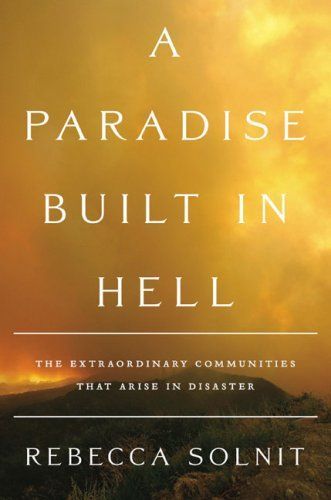
A Paradise Built in Hell The Extraordinary Communities that Arise in Disasters
Explores the phenomenon through which people become resourceful and altruistic after a disaster and communities reflect a shared sense of purpose, analyzing events ranging from the 1906 San Francisco earthquake to Hurricane Katrina.
Reviews
Andrew Louis@hyfen
Maggie Delano@maggiedelano
Katy Watkins@katy
Joylyn yang@joylyn
Andrew Reeves@awreeves
Becca M@becmarotta
Martin Ackerfors@ackerfors
Steve Daniels@stevezie
Joseph Aleo@josephaleo
Daniel Bower@danielbower
Highlights
Katy Watkins@katy
Katy Watkins@katy
Katy Watkins@katy